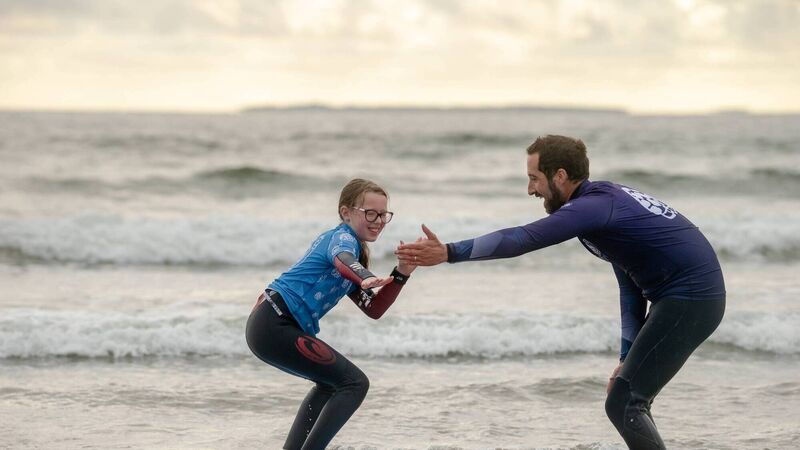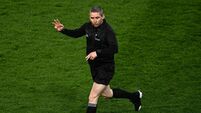'The beach really provides that happy place': the surf school for children with additional needs

Tom Losey gives a surfing lesson to Aoife Reed. Picture: Darragh Gorman
In 2006, Tom Losey was volunteering with an inclusive surf school in the United States when he saw the transformative effect being in the water had on a child with additional needs.
The experience inspired him to establish Liquid Therapy in 2011, an inclusive surf school in Ballyshannon, Donegal, which caters for children with complex physical and mental needs for free.











